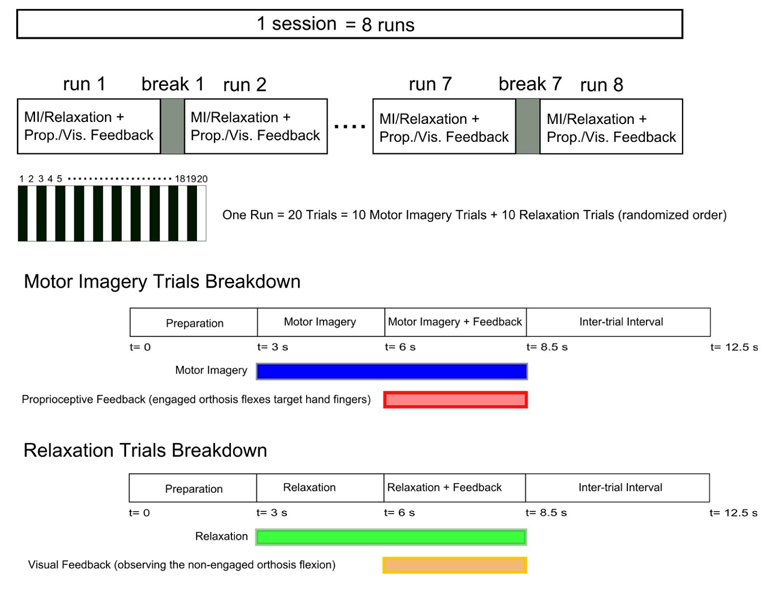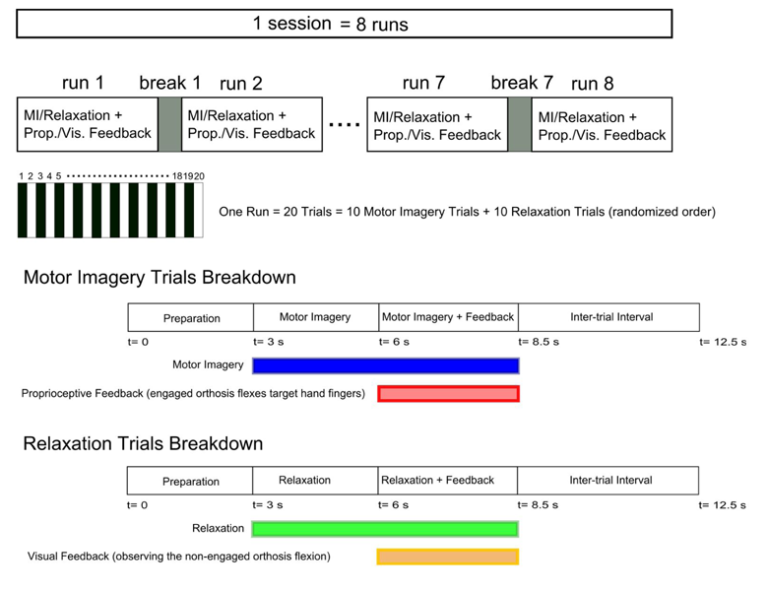
There is evidence that 15–30% of the general population cannot effectively operate brain–computer interfaces (BCIs). Thus the BCI performance predictors are critically required to pre-screen participants. Current neurophysiological and psychological tests either require complicated equipment or suffer from subjectivity. Thus, a simple and objective BCI performance predictor is desirable. Neurofeedback (NFB) training involves performing a cognitive task (motor imagery) instructed via sensory stimuli and re-adjusted through ongoing real-time feedback. A simple reaction time (SRT) test reflects the time required for a subject to respond to a defined stimulus. Thus, we postulated that individuals with shorter reaction times operate a BCI with rapidly updated feedback better than individuals with longer reaction times. Furthermore, we investigated how changing the feedback update interval (FUI), i.e., modification of the feedback provision frequency, affects the correlation between the SRT and BCI performance. Ten participants attended four NFB sessions with FUIs of 16, 24, 48, and 96 ms in a randomized order. We found that: 1) SRT is correlated with the BCI performance with FUIs of 16 and 96 ms; 2) good and poor performers elicit stronger ERDs and control BCIs more effectively (i.e., produced larger information transfer rates) with 16 and 96 ms FUIs, respectively. Our findings suggest that SRT may be used as a simple and objective surrogate for BCI aptitude with FUIs of 16 and 96 ms. It also implies that the FUI customization according to participants SRT measure may enhance the BCI performance.

